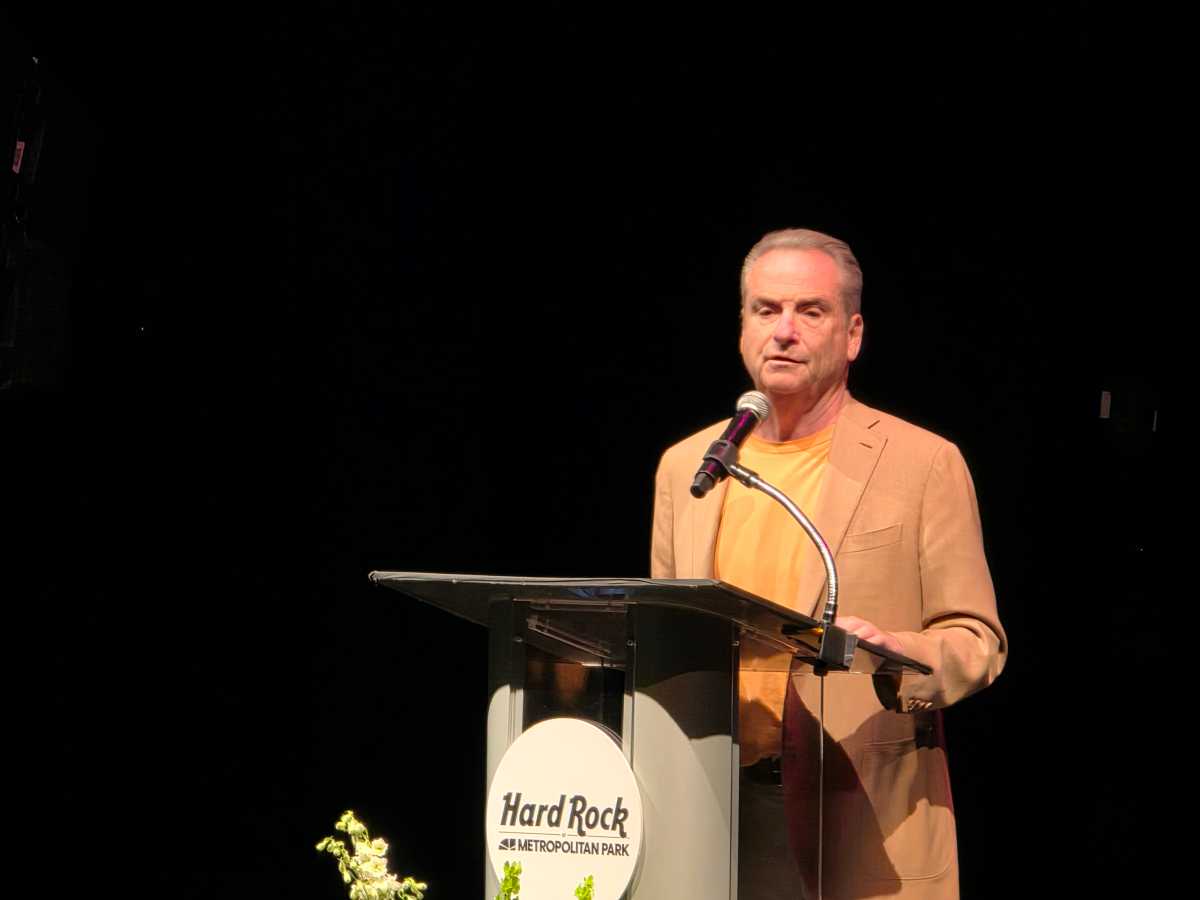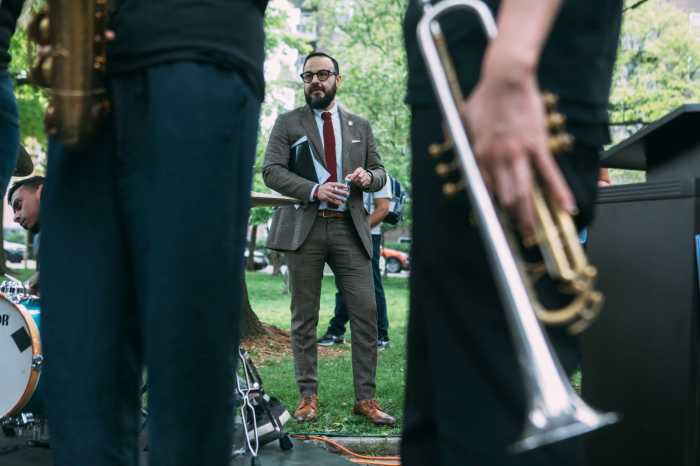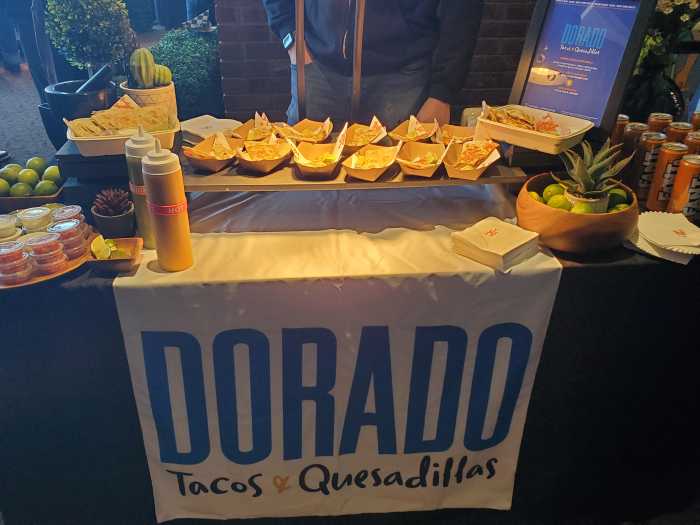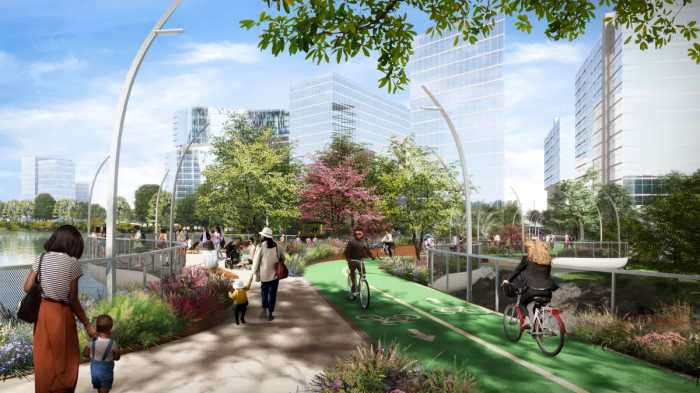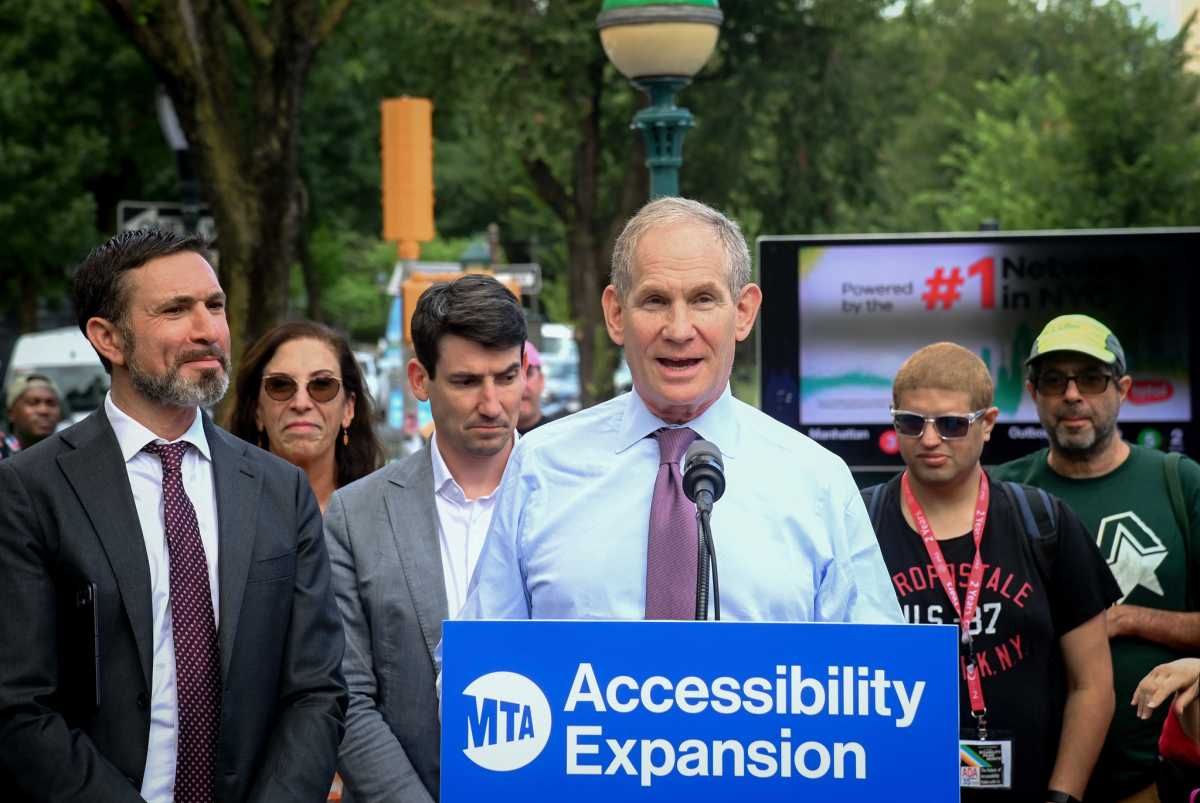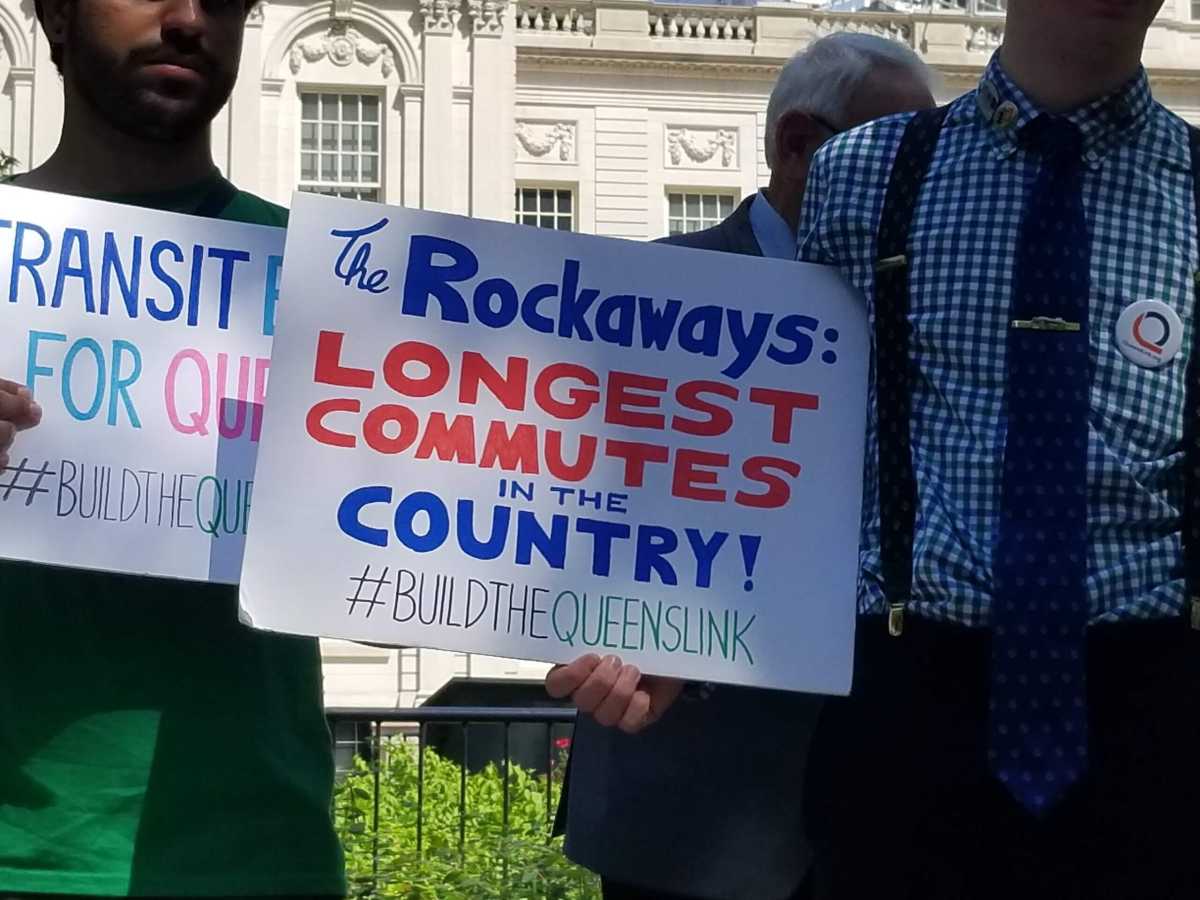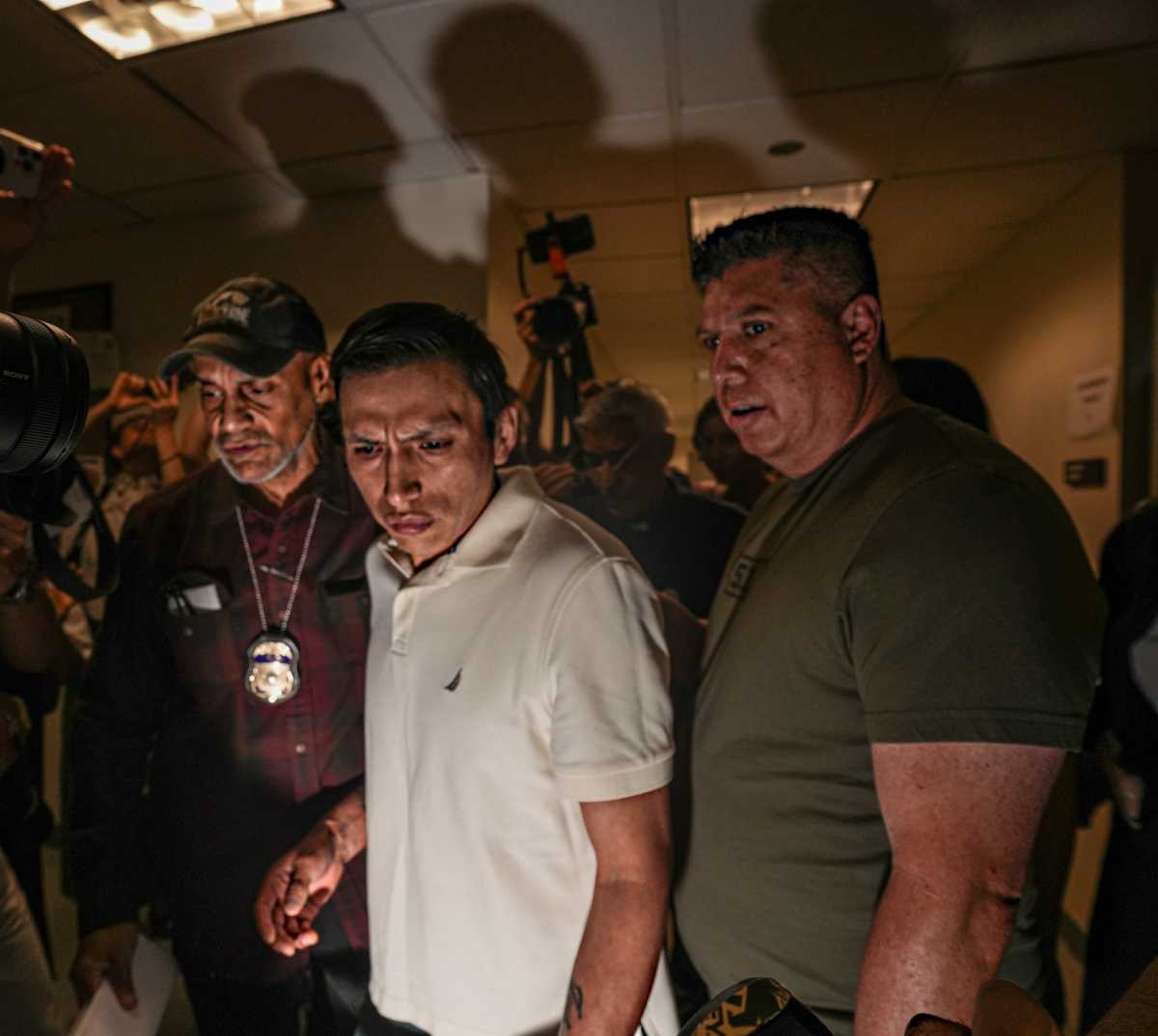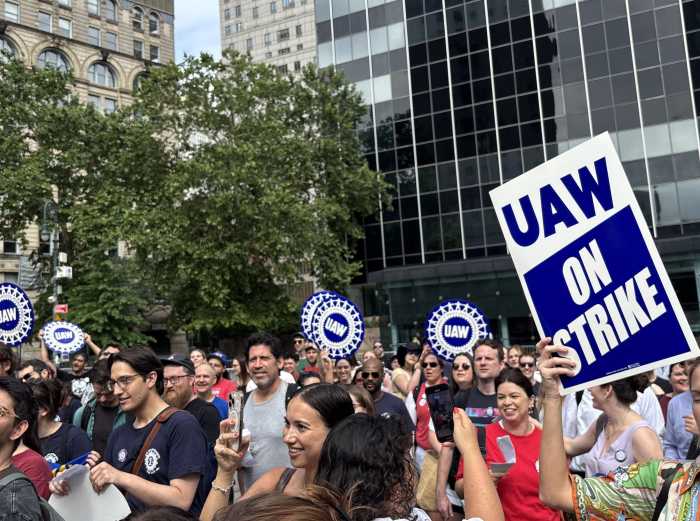Hard Rock International Chairman and CEO Jim Allen addressed hundreds of Queens-based vendors and small business owners Thursday morning at the Queens Theatre, outlining how they could play a key role in shaping the proposed $8 billion Metropolitan Park casino and entertainment complex near Citi Field—if the project is awarded one of the three downstate gaming licenses up for grabs later this year.
Speaking to a packed crowd in Flushing Meadows Corona Park, Allen detailed the wide range of bidding opportunities local businesses can expect, including contracts for site preparation, infrastructure, foundations, steel, metalwork, elevators, plumbing, and telecommunications.
The ambitious Metropolitan Park proposal, a joint venture between Hard Rock and Mets owner Steve Cohen, aims to transform 50 acres of asphalt parking lots adjacent to Citi Field into a hotel and entertainment district, with a full-scale casino at its center. The development includes a 25-acre public park, a Taste of Queens food hall, new restaurants and shops, a redesigned Mets-Willets Point subway station, and improved roads and pedestrian walkways.
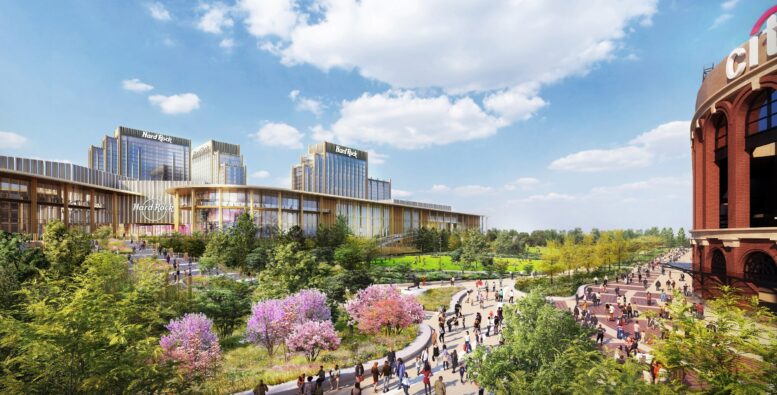
Cohen has pledged that the project would generate 23,000 union jobs and bring “much-needed” transit improvements to the area.
Although the site is currently a paved parking lot, it is legally designated as city parkland, requiring both zoning and city map amendments as well as state-level parkland alienation legislation before development can begin. In March, the New York City Council voted overwhelmingly to approve the zoning changes. Meanwhile, State Sen. John Liu and Assembly Member Larinda Hooks have introduced companion legislation bills in the state legislature.
Still, the entire project hinges on securing one of the three downstate casino licenses, with a final decision expected from the New York State Gaming Commission by December 2025. While two licenses are expected to go to existing racino operators—Empire City Casino and Queens-based Resorts World—the remaining slot is hotly contested by developers proposing casinos in Times Square, Hudson Yards, Coney Island, the United Nations area, and the former Trump Links golf course in the Bronx.
Allen acknowledged the uncertainty around licensing but said Hard Rock’s global experience gives Metropolitan Park a competitive edge. “We have to be humble,” Allen said, noting that Hard Rock has a presence in 77 countries. “We recognize that we may not be selected, but if we are awarded this amazing opportunity… we want to be ready to go big.”
He added that the New York market represents the single biggest opportunity for integrated resorts in three decades.
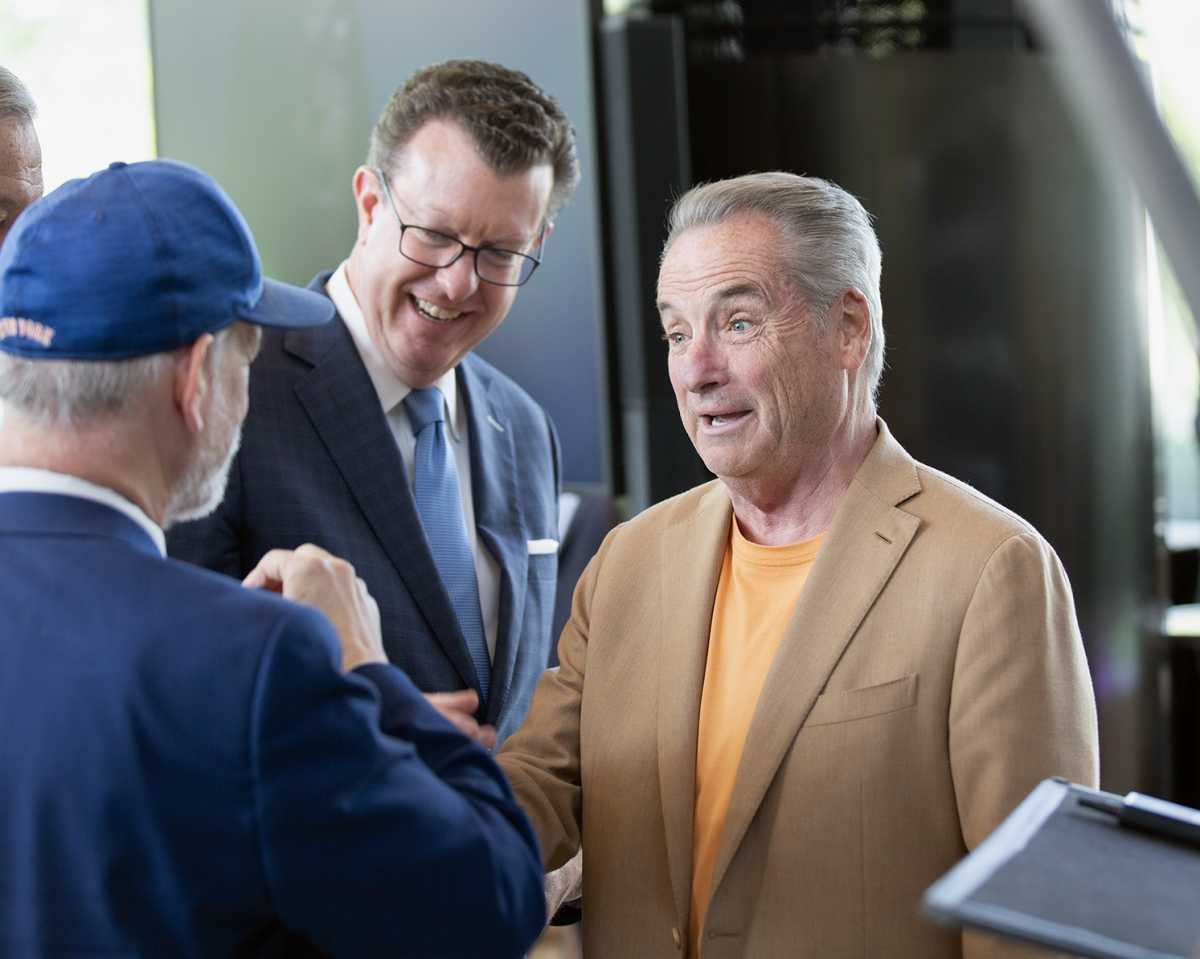
Because of the unpredictable timeline, Allen said Metropolitan Park is preparing to release 88 early bid packages in Q3 and Q4 of 2025, including surveying, temporary plumbing, worker turnstiles, and foundation concrete. Contracts will only be fulfilled if the project secures a license, but the team is also ready to invest capital in additional Q1 2026 packages, such as steel, elevators, and telecommunications—critical materials needed to keep construction moving swiftly if the bid is successful.
“We must be ready to proceed at a moment’s notice,” Allen said, adding that the gaming commission could issue a decision before the end of the year. He noted that the project will require more than 13,000 pilings for its foundation, with some stretching “hundreds of feet” underground.
Allen emphasized that the development’s success is deeply tied to local participation. He said the project will continue to prioritize contracts with Queens-based small businesses and pledged strong support for minority-, women-, veteran- and disabled-owned businesses, even as federal DEI initiatives face rollback.
That comment drew applause from the audience.
During a Q&A session, Ahyoung Kim, director of economic empowerment at the Asian American Federation, asked whether immigrant-owned businesses would receive the support they need to apply for contracts. She noted that language and cultural barriers often prevent many from accessing procurement opportunities.
Allen responded that Hard Rock’s international marketing teams can offer services in multiple languages to assist interested vendors. He also said the project would host additional small-group community events to build relationships with local companies.
Metropolitan Park plans to hire a general contractor in April 2026 if the license is awarded and begin final contracting roughly 18 months before completion. Services will include equipment rental, roofing, maintenance, cleaning supplies, and food and beverage vendors.
Allen also revealed new details about the planned Taste of Queens food hall, which he said will be exclusively reserved for Queens-based eateries and vendors. The goal, he said, is to create flexible leasing options that lower barriers for small businesses.
“Maybe there could be spots just on a weekend,” Allen said. “Maybe you [take a space] for a month and decide, ‘It’s not for me.’ That’s fine—we’ll find someone else to take the space. It’s really designed to have that flexibility based on serving the community.”
He stressed that the food hall will not include national chains. “We’re not going to any of those companies and leasing them space,” Allen said, referencing brands like Chipotle and Starbucks. The remark drew more applause from the crowd.
Despite its broad community backing and detailed planning, Allen reiterated that the development will not move forward without a casino license. “You can’t build an $8 billion building if you don’t have the gaming entertainment,” he said. “That is a fact of the situation.”
Still, he underscored that the casino is only one piece of the project’s broader vision. “This is not just about gaming,” Allen said. “It’s about solidifying jobs and giving this project a global presence—while uplifting Queens.”

